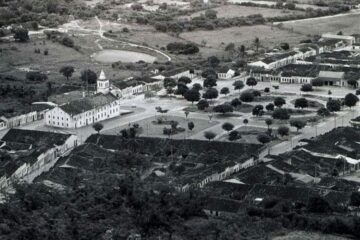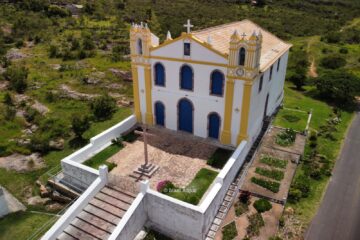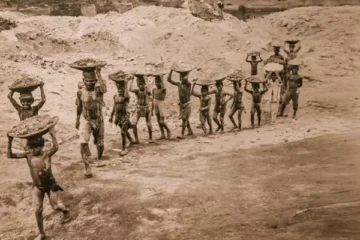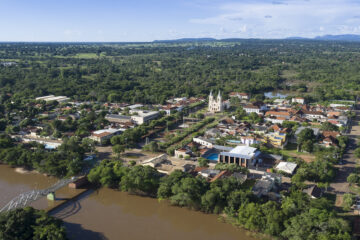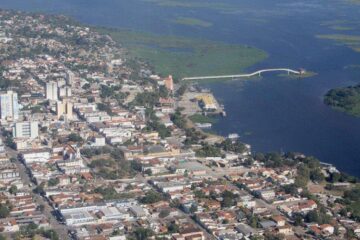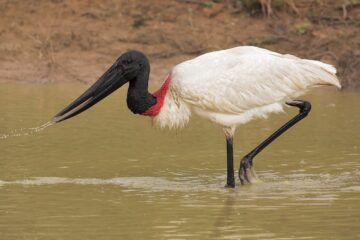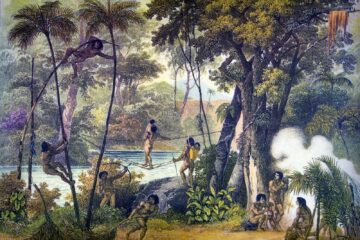Este post também está disponível em:
Português
English

With a body of work characterised by beach themes and songs that highlight the beauty of his homeland, Dorival Caymmi is considered one of the greatest composers of Brazilian popular music.
The grandson of Italians, his grandfather came to the state to work on the renovation of the Lacerda Elevator, one of the main landmarks of the Bahian capital, Caymmi was born in Salvador on 30 April 1914. His connection with music goes back to his childhood. His father worked as a civil servant and was an amateur musician, playing guitar, piano and mandolin, and his mother sang in the midst of household chores.
When he turned 13, he interrupted his studies after completing the first year of high school and went to work for the newspaper “O Imparcial”, where he stayed until 1929, when the paper closed down. At the age of 16, he already knew how to play the guitar, a technique he had learnt on his own, and composed his first song, the toada ‘No Sertão’.
Four years later, he made his debut on Rádio Clube da Bahia singing and playing the guitar, until in 1935 he won his own programme: ‘Caymmi e suas Canções Praieiras’. At this time he received a pink lampshade for winning a Carnival song contest with the samba ‘A Bahia também dá’.
Two years later, at the age of 23, Caymmi took an ita (the name given to the ships that travelled north-south in Brazil) and went to Rio de Janeiro to study law and try to get a job as a journalist. Living in a boarding house and working for a newspaper belonging to the ‘Diários Associados’ group, he continued composing and singing.
In 1938, he began performing as a freshman on radio Tupi (RJ), owned by Assis Chateaubriand, and, after some success, began singing on one of the popular programmes of the time, ‘Dragão da Rua Larga’.

Biografia de Dorival Caymmi
Dorival Caymmi’s international success
It was at this time, at the end of the 1930s, that Dorival Caymmi made a big leap towards worldwide success, when he performed one of his songs, ‘O que é que baiana tem’, on the radio. His innovative style caught the attention of a film company looking for a song to replace Ary Barroso’s ‘No Tabuleiro da baiana’, which was turned down due to the high fee charged by the artist from Minas Gerais, who was then at the height of his career. The song, the theme of the film ‘Banana da Terra’, boosted Caymmi’s career and made Carmem Miranda internationally famous.
The first meeting between the two took place at the composer’s house. Soon after hearing the song that would be the theme of the film, the Portuguese singer created the costume of lacy clothes and balangandans that would definitively mark her career.
In September 39, Dorival Caymmi began composing and performing several masterpieces with the sea as his main inspiration, such as ‘Rainha do Mar’, ‘Promessa de Pescador’ and ‘O Mar’, a song used in a show coordinated by the then first lady Darcy Vargas. While working at Rádio Nacional (RJ), he met singer Stella Maris, whom he married and had three children, all musicians: Danilo, Dori and Nana.
From the 1940s onwards, the Bahian composer began to dedicate himself to samba-canção, a musical genre he had been practising since Noel Rosa. The emblematic song of this phase is ‘Marina’, recorded in 1947 by Dick Farney. Also during this period, he met a fellow countryman who became a great friend, Jorge Amado. The writer’s characters served as inspiration for some of his songs, such as ‘É doce morrer no Mar’, ‘Modinha para Gabriela’ and ‘Retirantes’.
In 1945, he set to music an anthem for communist leader Luís Carlos Prestes’ campaign for the Senate. Kept secret for many years, the lyrics were published for the first time in the book ‘Dorival Caymmi, o Mar e o Tempo’, written by his granddaughter Stella Caymmi. ‘Vamos votar/ com Prestes votar/ Para o Partido Comunista/ Vamos votar’ (Let’s vote/ With Prestes to vote/ For the Communist Party/ Let’s vote), said one of the anthem’s passages.
In the 1950s, another Bahian appeared in Caymmi’s life. With a different style of singing, João Gilberto recorded ‘Rosa Morena’ and ‘Saudade da Bahia’, taking Caymmi’s music into Bossa-Nova, a rhythm that exploded all over the world and influenced a whole generation of artists. In Bossa-Nova, he also met a composer who would take the beauty of Brazilian music to the world: Tom Jobim. Until Jobim’s death in December 94, the two composers maintained a strong bond of friendship.
Titles and honours
Recognised and awarded in several countries, Dorival Caymmi earned the nickname ‘lazy’ for taking too long to release records and present new music. He never composed under external pressure and even took years to create some songs. It is said that it took him nine years to complete this stanza of the lyrics to ‘João Valentão’. ‘And so this man falls asleep / Who never needs to sleep to dream / Because there is no dream more beautiful / Than his land!
Caymmi’s oeuvre cannot be considered extensive: approximately 120 songs spread over 20 discs, where the beach melodies, those inspired by the folklore of Bahia and the urban sambas-songs stand out. Caetano Veloso, another Bahian, has an explanation for this. “It’s true that Caymmi composed just over 100 songs, but they are all masterpieces. Who is the composer who can afford that? I’d like to be that lazy.”
On his 90th birthday, in April 2004, he received a great tribute from his children: a concert that toured the main Brazilian capitals with his songs. Since leaving Salvador, Dorival Caymmi has divided his time between the tranquillity of his wife’s hometown, Pequeri, in the Juiz de Fora region of Minas Gerais, and Rio de Janeiro.
A symbol of wisdom and success, he has collected honours such as titles (Honorary Citizen of the Municipality of Rio de Janeiro and Doctor Honoris Causa by the Federal University of Bahia), commendations (Orde dês Arts et dês Letters and Order of Labour Judicial Merit and Order of Merit of Bahia), medals (Castro Alves Medal of Merit, Machado de Assis Medal and Santos Dumont Medal of Merit), and a bust (modelled by sculptor Bruno Giorgi in the 1950s) in Salvador, passing through the Dorival Caymmi square and avenue in Itapuã, also in the Bahian capital. Another great tribute to the work of the Bahian composer took place in 1986, when the Mangueira samba school won the Rio Carnival by choosing his life as the theme of their samba-enredo.
Caymmi died aged 94 of kidney failure and multiple organ failure. The composer was at home, but according to family members, his health had been failing for some time.
Biography of composer and singer Dorival Caymmi
